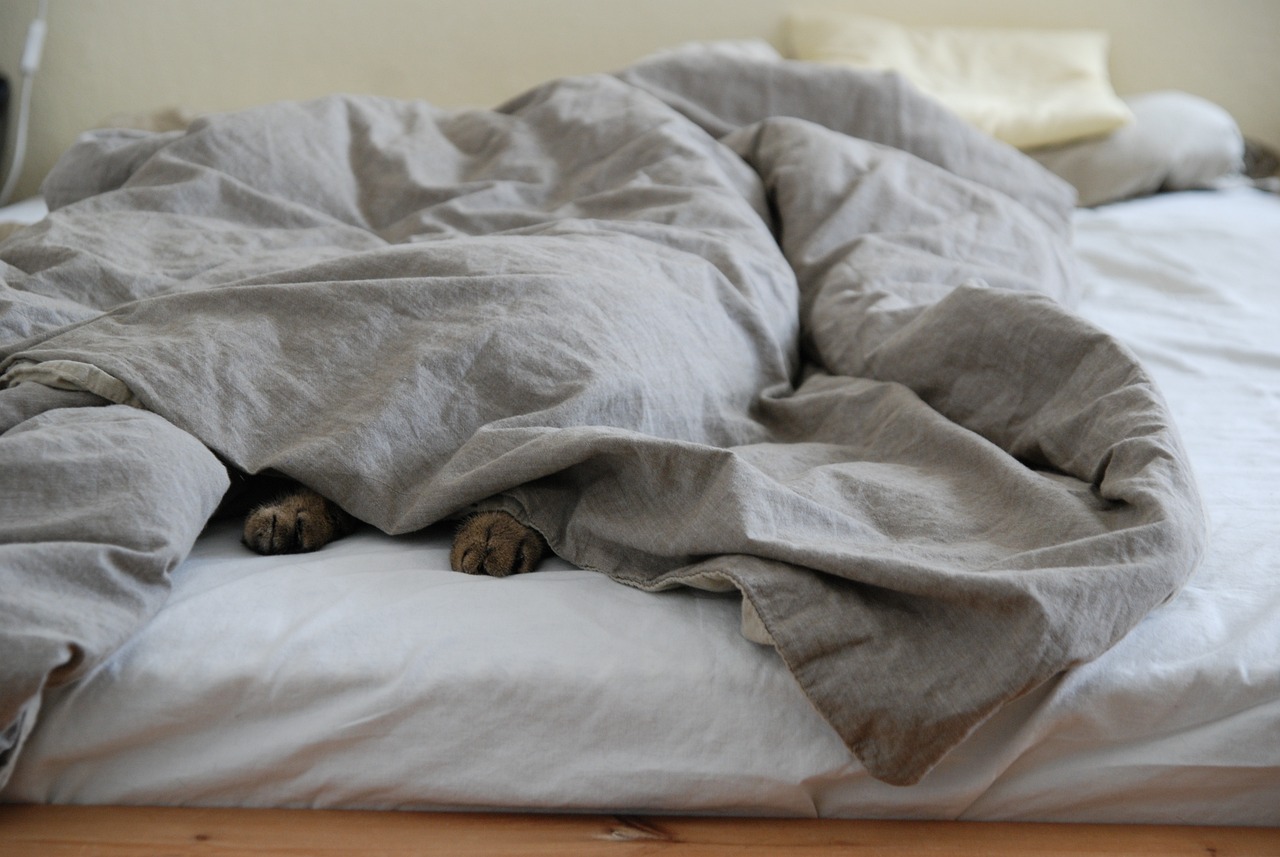Prioritize Sleep: Key to Success and Well-being
Regardless of the phase of life you're in—whether you're thriving, struggling, or somewhere in between—sleep is essential. Studies show that adults need 7-9 hours of sleep each night to maintain optimal health and productivity. It’s the foundation of physical, mental, and emotional health. Without good rest, nothing significant can be accomplished or fixed. Your body needs time to reset, adjust, and carry out vital processes that keep you functioning at your best.
If you're feeling depressed, poor sleep will only exacerbate it. Similarly, if you're not hitting your weight-loss goals, the culprit might be a lack of quality rest. Sleep regulates hormones like leptin, which suppresses hunger, and ghrelin, which stimulates appetite. Insufficient sleep disrupts these hormones, making it harder to maintain a healthy weight.

One of the most important investments you can make is creating a comfortable sleeping environment. Whether it's your bedroom, a couch, or even a cardboard box, comfort matters. Don’t feel guilty about spending money on a high-quality mattress or cozy bedding—look for features like memory foam or cooling technology that suit your needs. Think of it as an investment in your future and overall well-being.
Tips for Better Sleep
- Establish a Nighttime Routine: Consistency is key. Aim to go to bed and wake up at the same time every day, even on weekends. This helps regulate your body’s internal clock.
- Wind Down: Start winding down at least an hour before bed. For example, parents could enjoy storytime with kids, students might organize their notes for the next day, and busy professionals can spend a few moments journaling.
- Limit Screen Time: The blue light from electronic devices like computers and smartphones can interfere with your ability to fall asleep. Consider turning off screens at least an hour before bedtime or using blue-light-blocking glasses.
- Relaxation Techniques: Try deep breathing exercises, guided meditation apps like Headspace, or reading a physical book to help calm your mind.
- Tailor Your Nighttime Routine to Your Lifestyle: Consistency is key, but your routine should also fit your daily demands. Parents might benefit from a family wind-down period, while students can set a study cutoff time before bed.
- Create a Sleep-Friendly Environment:
- Keep your bedroom dark, cool, and quiet.
- Invest in blackout curtains or a sleep mask to block out light.
- Use white noise machines or fans to mask disruptive sounds.
- Watch What You Consume: Avoid caffeine and heavy meals in the evening. Opt for a light snack if you’re hungry before bed.
- Stay Active During the Day: Regular exercise can help you sleep better, but avoid vigorous workouts too close to bedtime as they may energize you.
- Limit Naps: While short power naps can be refreshing, long or late-afternoon naps might interfere with your nighttime sleep.
Natural Sleep vs. Sleep Aids
While natural sleep is ideal, some people may initially need help from sleep aids like melatonin or other medications. These can be a good starting point if you’re struggling, but it’s important to use them sparingly and under a doctor’s guidance. Over-reliance on sleep aids, like melatonin or prescription medications, can lead to dependency and diminish the quality of your rest. Alternatives like chamomile tea or lavender aromatherapy may be worth trying first. Even if they help you fall asleep, they may not guarantee that you wake up feeling rested. In fact, you could feel groggy or moody if you rely on them too much.
Herbal Remedies and Teas for Better Sleep
Many people find herbal remedies and teas helpful for improving sleep naturally. However, always consult a doctor before trying any new remedy, especially if you have underlying health conditions or are taking other medications. Additionally, check for potential allergies to ensure the remedy is safe for you.
Some popular options include:
Many people find herbal remedies and teas helpful for improving sleep naturally. Some popular options include:
- Chamomile Tea: Known for its calming effects, chamomile tea can help reduce anxiety and promote relaxation.
- Lavender Tea: Lavender is renowned for its soothing properties, making it a great choice before bed.
- Peppermint Tea: While not sedative, peppermint tea can help with digestion and relaxation, which may indirectly improve sleep.
- Valerian Root Tea: This herbal tea has mild sedative properties and can be helpful for those struggling to fall asleep.
- Lemon Balm Tea: Lemon balm is known for reducing stress and improving sleep quality.
- Passionflower Tea: Often used to alleviate anxiety, passionflower tea can also improve sleep duration and quality.
Experimenting with these natural options may help you establish a healthier and more sustainable sleep routine.
While natural sleep is ideal, some people may initially need help from sleep aids like melatonin or other medications. These can be a good starting point if you’re struggling, but it’s important to use them sparingly and under a doctor’s guidance. Over-reliance on sleep aids, like melatonin or prescription medications, can lead to dependency and diminish the quality of your rest. Alternatives like chamomile tea or lavender aromatherapy may be worth trying first. Even if they help you fall asleep, they may not guarantee that you wake up feeling rested. In fact, you could feel groggy or moody if you rely on them too much.
The Difference Sleep Makes
Good sleep is the difference between being okay and being great. Imagine climbing a steep mountain covered in quicksand versus ascending with your own built-in luxury elevator, complete with snacks and air conditioning. Sleep is your elevator—it equips you with the energy, clarity, and resilience to tackle life’s challenges.
Start making sleep a priority today. Your future self will thank you! Tonight, take the first step: set an alarm not just to wake up but also to remind yourself when it’s time to begin your wind-down routine.
